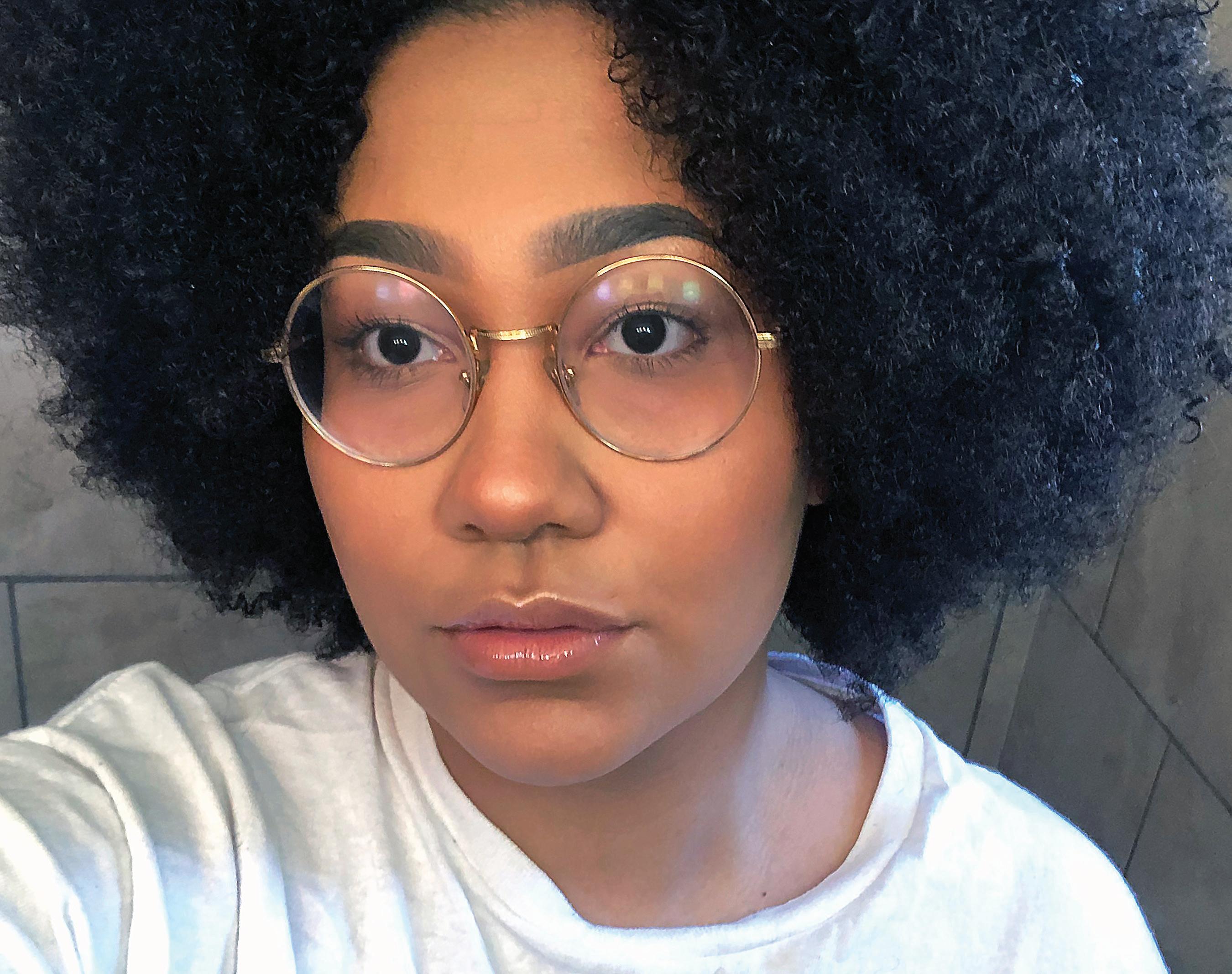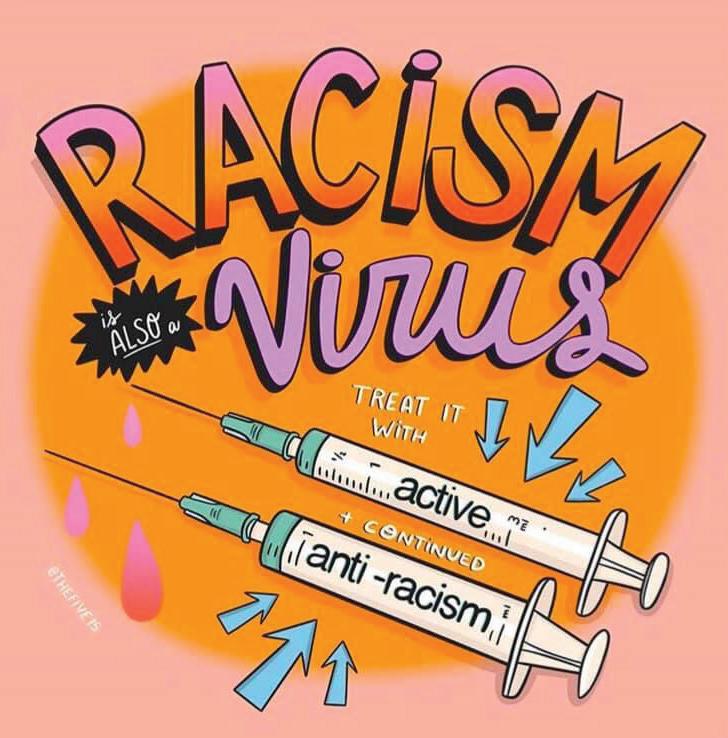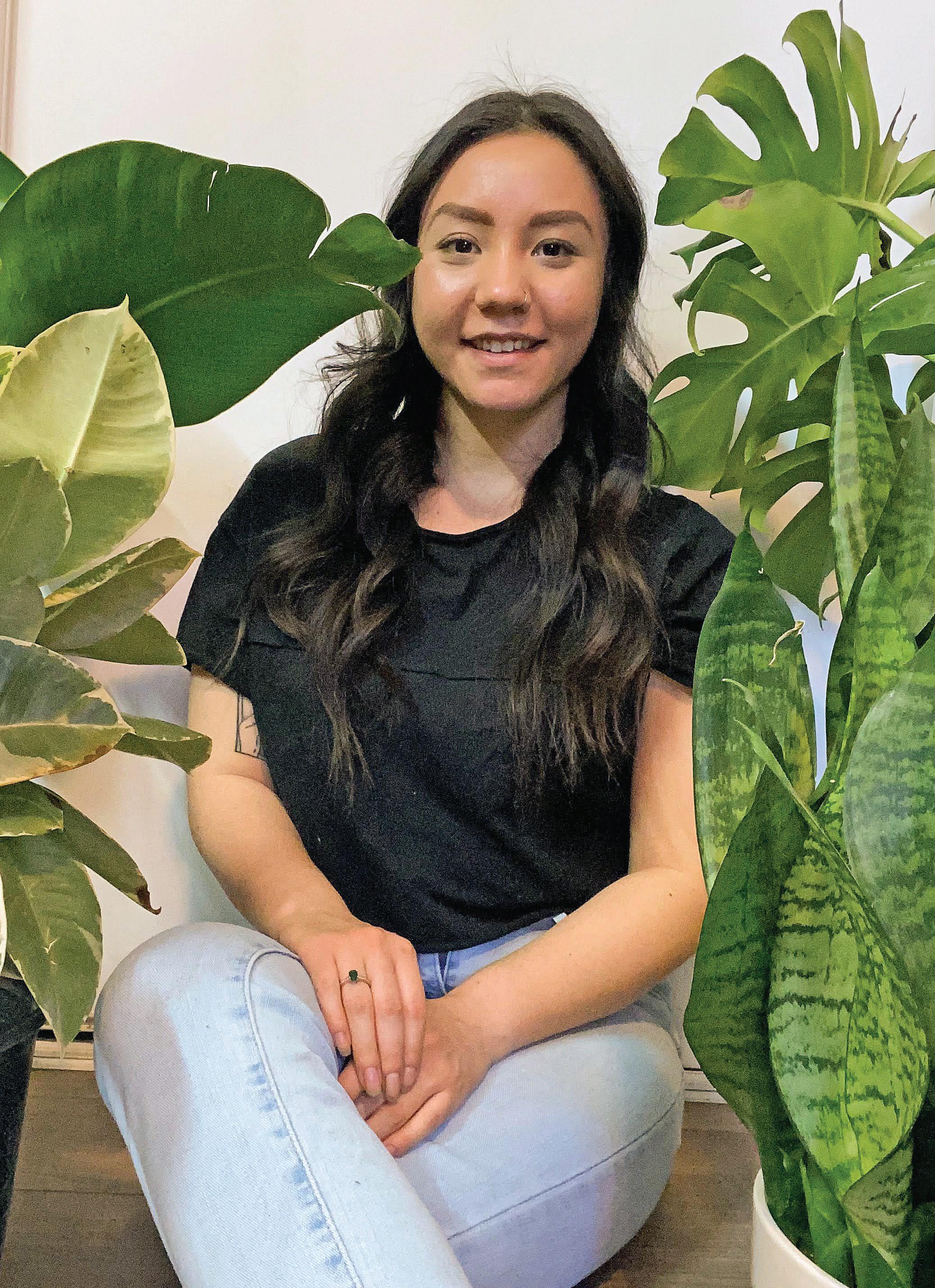
7 minute read
Grassroots activist, Jordan Ledyit
ACTIVISM Lethbridge activist stands on guard against racism
Advertisement
MEGAN CREIG mcreig@cjournal.ca
Jordan Ledyit is no stranger to racism. However, she says her most striking experience with discrimination took place at an establishment that, like herself, is distinctly Canadian. It happened at a Lethbridge Tim Hortons where Ledyit and family, visiting from Strathmore, were treated quite differently than many other Canadians.
As she approached the counter, Ledyit says the woman behind it called out to them: “We don’t serve your kind here.” They were told to “get out.” And so Ledyit and her family returned to her home instead of risking further conflict.
Ledyit says her family didn’t wish to comment further on the incident. The location’s current owner says he had taken over after the incident occurred and as the previous owner never mentioned it, he didn’t know of it. The current owner declined to provide the previous owner’s contact information but promised to pass along a request from the Calgary Journal for comment. The Journal did not receive a response, nor did Tim Hortons respond to three separate requests for comment.
This situation might be hard to imagine happening if you’ve never been discriminated against because of your race. But Ledyit, who is Black, and her visiting family, who are Indigenous, certainly have. And Ledyit is no longer willing to standby and let it happen. So she is using her voice to counter prejudice, having recently organized a protest against discrimination in Lethbridge.
That city became her home after being adopted from Penticton, B.C., soon after her birth. Her adoptive parents are white but, despite the differences, Ledyit has always felt a connection to her roots. Ledyit believes her mother, who has Indigenous siblings, was good at making sure she understood her background because she was also adopted.
“My mom is amazing. She took the time to learn how to do my hair which is a huge thing,” says Ledyit. “She learned how to do passion twists. She learned how to wash [my hair] properly. When I was little, she was always doing my hair, she would put me in front of a movie once a month and she would twist my hair.”
Although Ledyit was raised to appreciate where she had come from and who she was, not everyone would be as kind as her family had. The opposite was true. As a visible minority, Ledyit can remember being treated differently by her peers from the moment she began kindergarten.
“There was me, the Black kid, and my best friend was First Nations,” says Ledyit. “Nobody would play with us. Nobody would talk to us.”
Still quite young, Ledyit didn’t understand the differences between herself and others. These differences were made clear by a white classmate who had only been part of Ledyit’s class for a matter of days. Ledyit wanted to befriend her, so she approached the girl and attempted to do just that. But the girl stated that she did not “like Black people.”
“I went home that day crying. Looking back on that, we were in kindergarten. There’s no way a little girl in kindergarten would say that unless they were taught to say that from their family. It’s ridiculous,” says Ledyit.
She experienced much of the same small-minded behaviour as she grew up. For example, she would enter a store and, from that moment on, she would be followed by its employees.
“They don’t do it unless you’re a person of colour,” says Ledyit. ”When I worked [in retail], anytime a First Nations person came in, [my boss] was like: ‘Keep an eye on them, get them out.’ It made me livid.”
Ledyit also faced difficulty finding a job. She says there have been several instances where she has made it into an interview only to be turned down almost immediately upon entering the room.
“The applications are online, and they might like my resume, but as soon as they see me, it’s like the demeanour changes. ‘Oh, you’re Black,’” says Ledyit. “I’ve gone into an interview and I can see that they’ve already made up their mind just by looking at me.”
Even on a day-to-day basis, the
Group United Against Racial Discrimination organizer, Jordan Ledyit. PHOTO: COURTESY OF JORDAN LEDYIT
> Jordan Ledyit
behaviour is much the same. People will approach her to ask where she’s from with little context. Ledyit says this kind of question can be okay if the inquirer cares about her and wants to know her story out of genuine curiosity. But, too often, this is not the case.
“That’s an ignorant question. I get it all the time and it’s not enjoyable for me.”
Ledyit advocates for others to take responsibility for their ignorance and do their research. She says, “If you’re asking a question you wouldn’t be asking someone else, don’t ask a Black person, don’t ask any other person of colour.”
“Canadian people like to pretend we’re biologically diverse, that we aren’t racist, and we don’t treat people of colour differently. It is completely false,” says Ledyit.
Yet, regardless of the way she was treated for most of her life, it was the deaths of George Floyd and Breonna Taylor that were the final straw for Ledyit.
“It just horrifies me that could have easily been me. I’m just living my life, I’m married, I have a child, I go to church on Sunday. I’m just living my life but my existence isn’t as valuable.”
Choosing not to stand by any longer, Ledyit created a space to talk about racial issues, calling it the Group United Against Racial Discrimination (GUARD). From there, she got together with a few of her friends and organized a protest. The protest took place at Lethbridge’s City Hall and hundreds of people were in attendance. Ledyit says that the response was amazing and validating.
“It has changed me quite a bit. I’m a lot more vocal because I’m at the point where no, I’m gonna call you out. Why are you saying that?” says Ledyit.
But as soon as the protest had ended, Ledyit was again confronted with racism. She was doing an interview when an Indigenous man who had been nearby joined in. Ledyit could tell the man was someone who was addicted and vulnerable, but this wasn’t an issue for the group, and the interviewers began to pose questions towards the man as well, gaining an interesting perspective on his life.
“[Then] this guy from city hall comes out like a thug,” says Ledyit.
The man from city hall began to ask her and her interviewers whether the Indigenous man was bothering them and if he should remove him.
The group said no since he hadn’t been bothering anyone but as “It was clear as day that he had issues, [he] profiled him and decided he was causing a disturbance.” The man from City Hall “ruined some of our footage because he was standing there and wouldn’t leave. It was so frustrating,” says Ledyit.
“We’re doing an interview about racism and you’re being racist right now.”
In response to a request for comment about the incident, the City of Lethbridge said, “We do not have a record of any incidents at the event you mention below. As such, we are unable to comment on the statements that have been made.”
Ledyit acknowledges that there is a greater issue at hand; she says that people who don’t deal with racial discrimination are often unwilling to acknowledge their privilege and biases.
Even if the issue doesn’t affect you directly, Ledyit advises allies to “post on [social media], talk to your racist relatives, say something” and that “If you feel uncomfortable using your voice, there are still things you can do.”
Yet, Ledyit still fears that even with mass attention on these issues, nothing will truly change.
“It’s not going to, it’s just not,” says Ledyit. “I think it might get less and less in your face; it might get less and less brutal; it might be a little more equal, but I don’t think it’ll ever be the same.”
But the doubts that she has do not keep her from pushing against what she knows to be wrong.
I want it to gain momentum. I want the future to be brighter for our children so that they can grow up in a way that we didn’t.”

A photo the Group United Against Racial Discrimination used on their Facebook page. PHOTO: COURTESY OF FIVE 15










